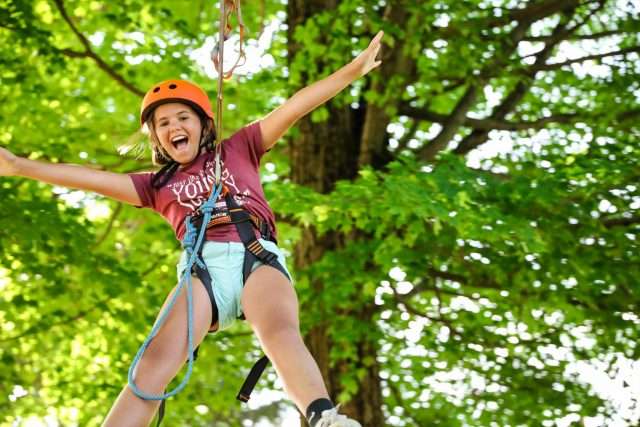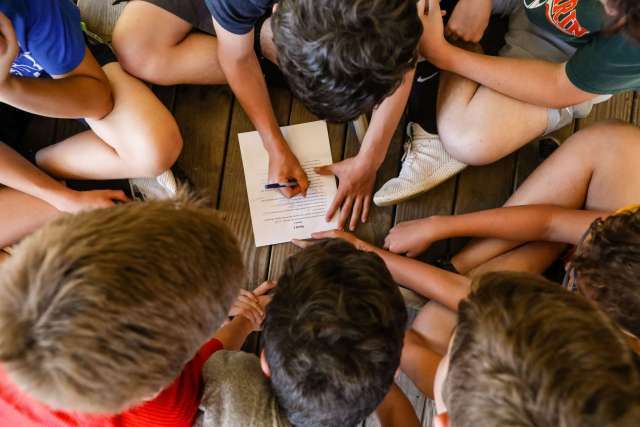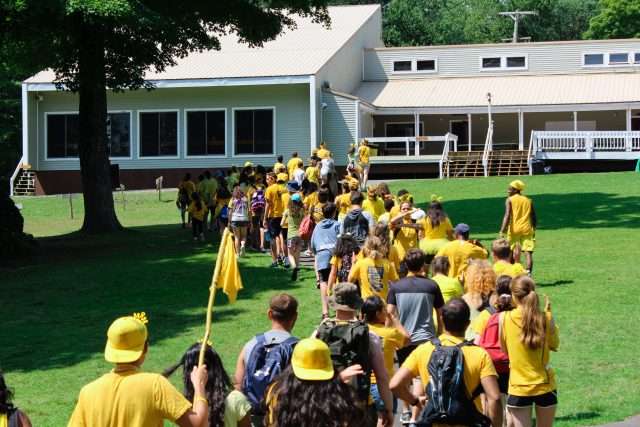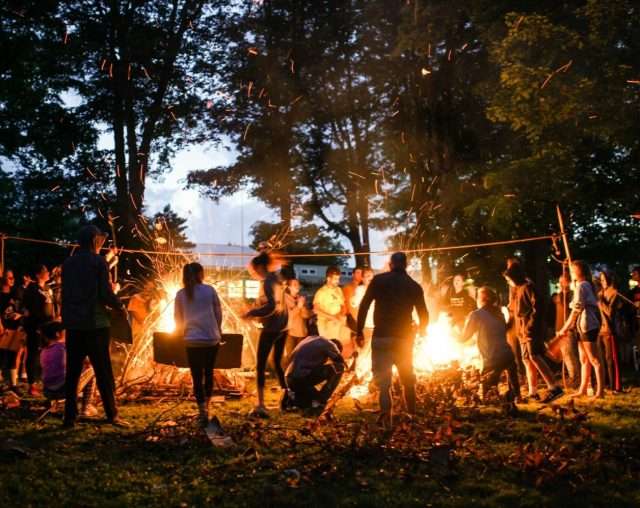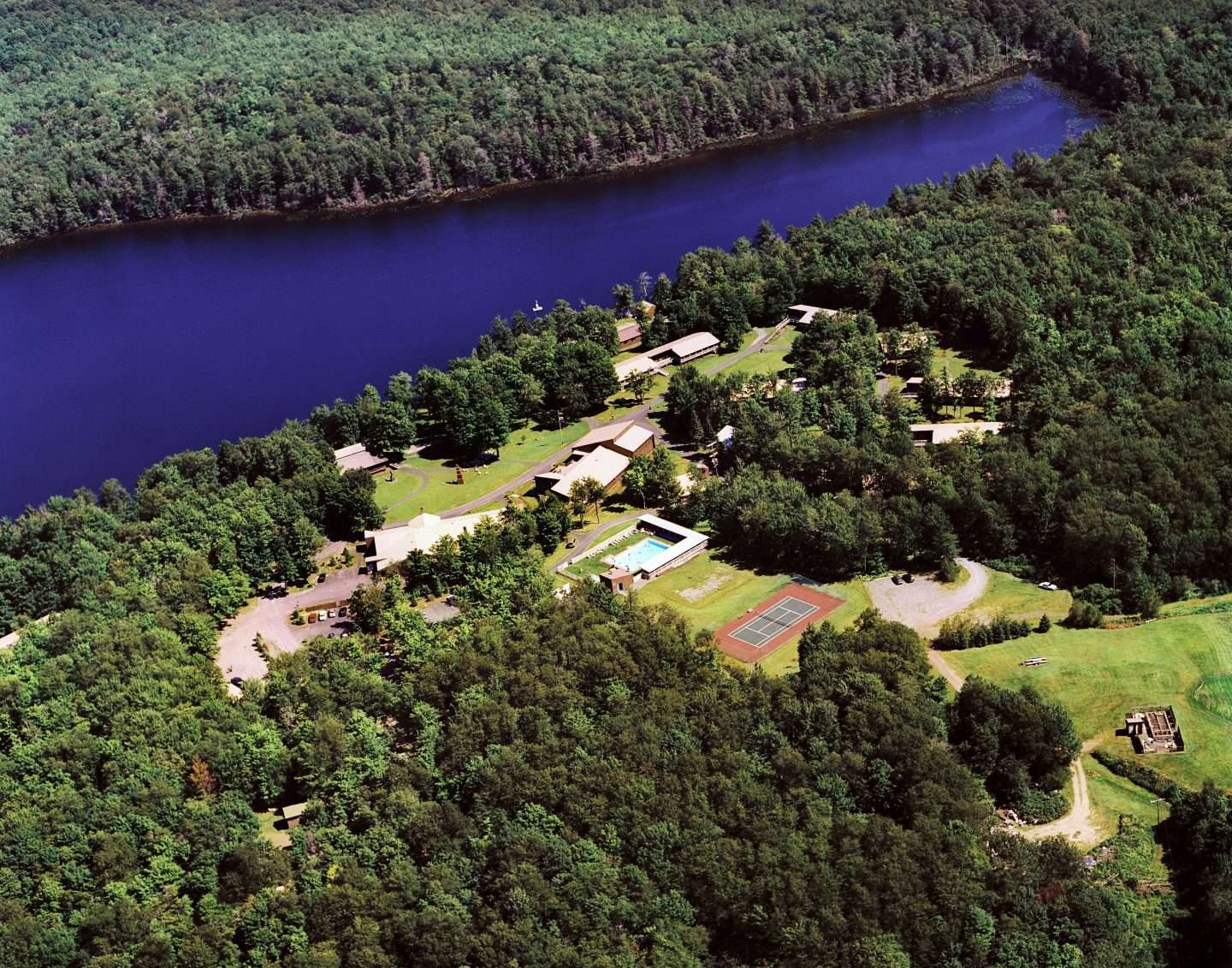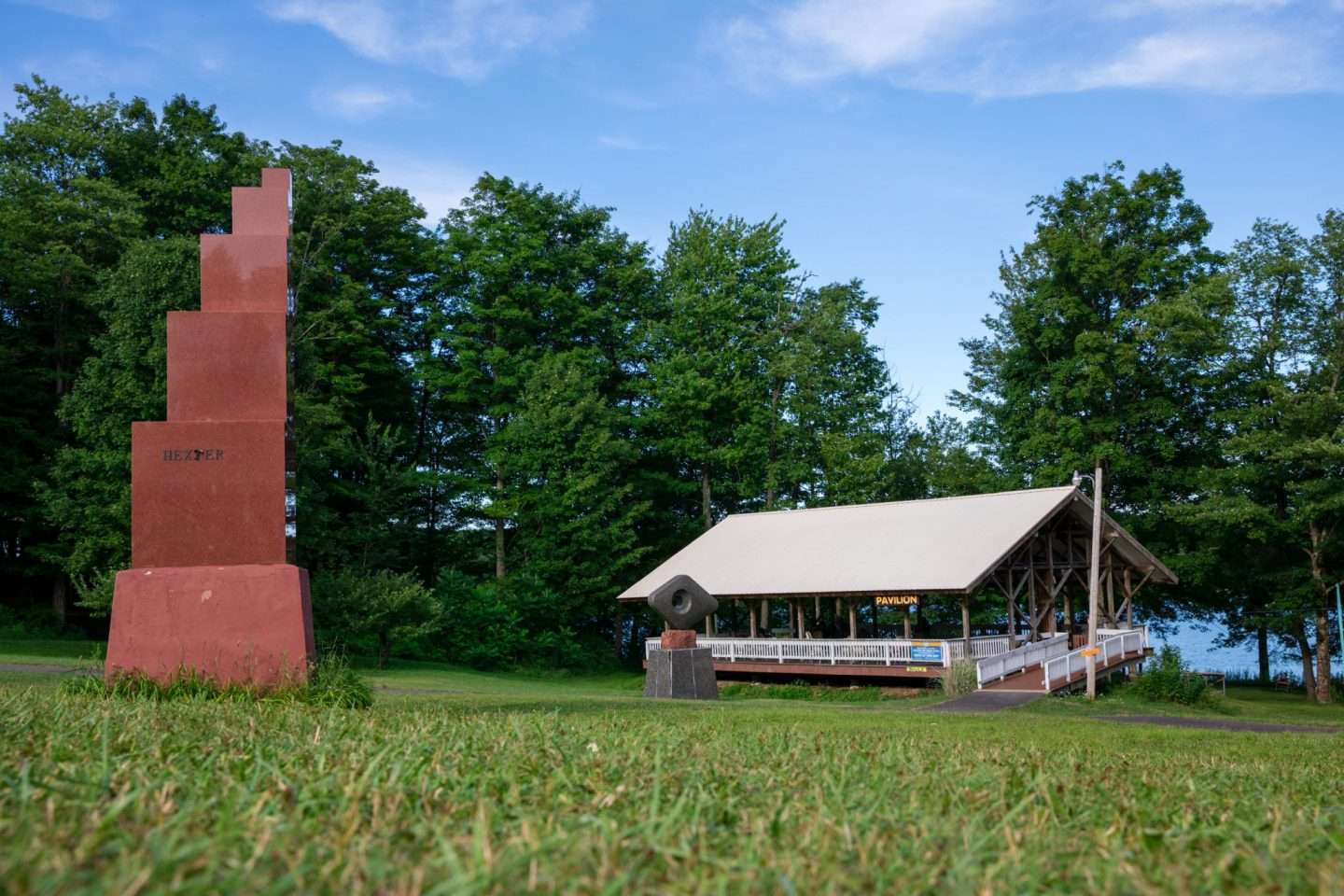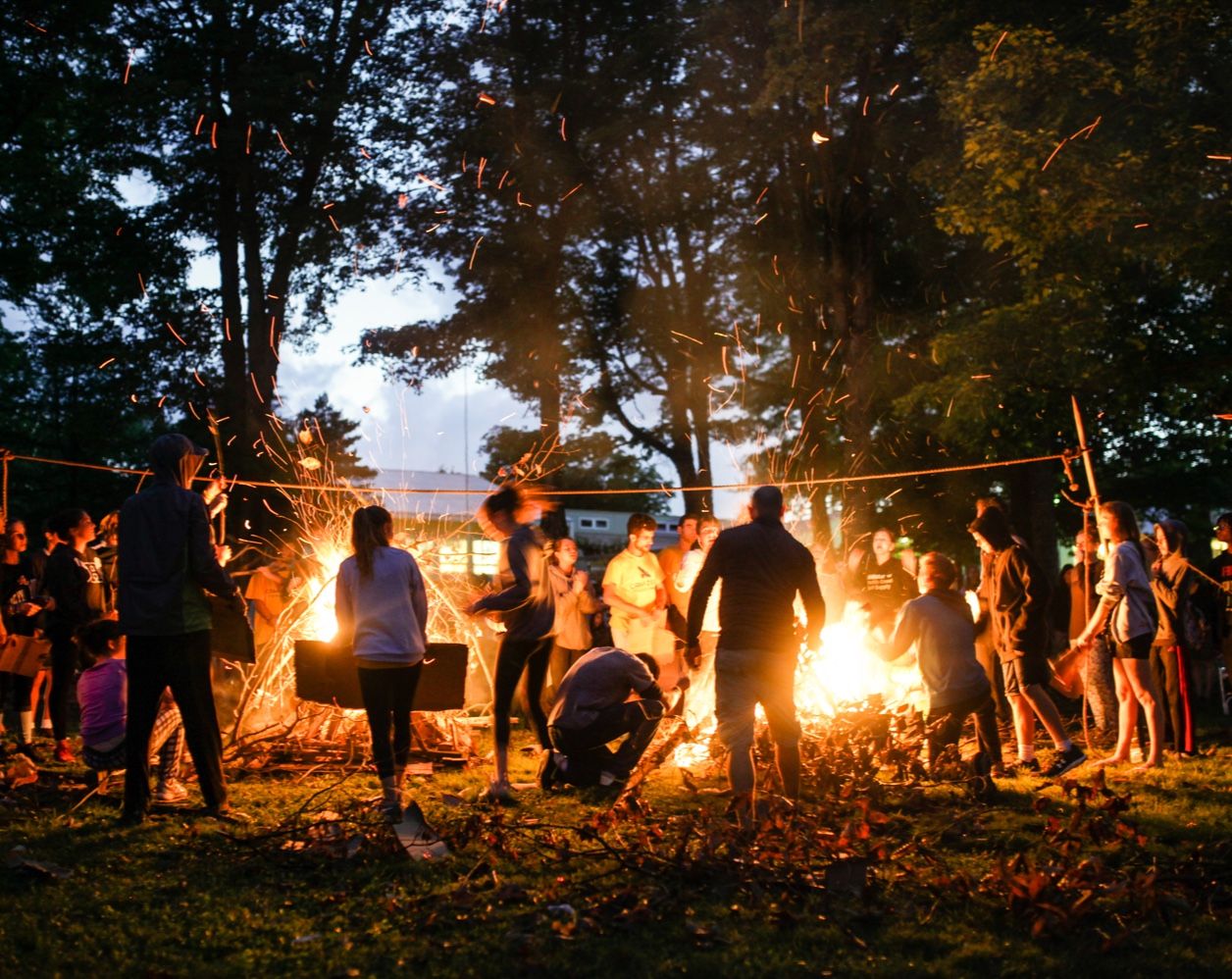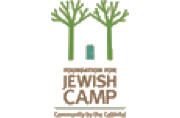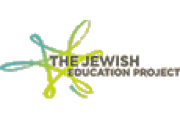Please scroll down to see all our advice emails about preparing for camp!
6/22/22 Email: Preparing for Camp: Six Insider Tips to Prepare Your Camper – Seventh Installment
Dear Friends:
We hope your camp preparation is going well! Please see below for a fun article with some tips about preparing for camp. This one comes from a retired camp director named Jamie Lake. Before getting to Jamie’s article, one a quick reminder:
Diligent, our COVID testing company that will be administering camper PCR tests on arrival day, requires all families to submit an intake profile form. Currently, many of our families have not completed this form. (HUGE thank you to those who have!) In order to better streamline the arrival day procedure, the Camp Zeke admin team will be creating profiles for those families, and you will receive an email from Diligent confirming that your profile was created. Please look out for those emails and ensure you provide Diligent with your driver’s license and health insurance card. If you do so in advance, your intake process on opening day will be a lot quicker. If you wait, please remember to bring your license and insurance card to camp when dropping off your camper(s).
Now to the fun stuff!
* * *
Six Insider Tips to Prepare Your Child for Overnight Camp
By Jamie Lake (appeared in Kveller)
My camp duffel bags are 30 years old.* This is the first time since 1986 that they will not make the trek with me from Chicago to Wisconsin for a summer filled with outdoor adventure and friendship. As a life-long camper and now retired camp director, I have enough experience to write a doctoral dissertation on how to prepare your child for the essential Jewish-American tradition: going to overnight camp. Instead of boring you with endless suggestions, I’ll share some tried and true advice.
1. Shop, label, and pack with your child. Gathering items and labeling them with your child’s name, especially for the first timer, can be a lot of work. Doing this together sets the stage for the camp experience where your child will be responsible for her belongings. Kids should know what they are bringing with them, and parents can keep an eye on making sure that unnecessary or banned items don’t end up in your child’s luggage. [As a reminder, see our Parent Handbook for Camp Zeke’s packing list- page 10.]
2. Be smarter than the packing list. Camp directors spend years creating and reworking the camp’s packing list, but this list is designed for a generic camper, not your camper. You’ll want to follow the packing list recommendations, but you also don’t want to send unnecessary things. For example, if your daughter hates wearing sandals, don’t send her to camp with sandals even if they’re on the packing list. (This logic should not be applied to toothbrushes, soap, or shampoo no matter how much your child may dislike using them!) Also, resist the Jewish parent urge to go way beyond what is recommended on the packing list. Your child will have limited space to keep all of her belongings. I promise that once she gets to camp, she won’t need every gimmicky camp accessory or 10 extra t-shirts.
3. Talk about camp, but avoid the scary-funny stuff. Keep in mind that the funny memories you have about mishaps from your days as a camper may only be funny because of the time that has passed since the experiences. You want to avoid mentioning that one time a bat flew into your cabin… Instead, focus on neutral memories, talk about what they are looking forward to, check out the photos on the camp’s website, or watch the camp’s promotional video together. [Read guidance provided by camp about how to get past the pre-camp jitters. It’s totally normal for kids to be nervous before camp!]
4. Practice, practice, practice. I hope that one of the reasons you are sending your child to camp is to help them gain independence and a sense of personal responsibility. Begin now by having your soon-to-be camper manage their own hygiene routines (teeth brushing, showering, hair brushing), keeping track of their things, and making their bed with minimal reminders. These are skills that kids will use at camp, and you won’t be there to keep on them. Your child’s counselors will provide gentle reminders, but they will really appreciate a camper who is ready to do these things without much prodding. [Also, critically, please make sure that your campers are prepared to apply sunscreen every day and check themselves for ticks every day. We will have signs and reminders around camp, but campers need to be taught the importance of this from home.]
5. Manage expectations. This can take on many forms in the weeks leading up to camp. Camp is an unbelievable experience, but similar to home, it is not always perfect. It’s OK to be honest about this with your child. The same idea applies to homesickness. Missing home is a normal part of being away from home, and it doesn’t mean that you can’t have fun at camp. In both scenarios, what’s most important is that you discuss with your child who they can talk to at camp if they are having a bad day or are really missing your dog. Kids should know that the adults at camp [Camp Zeke’s counselors, unit heads, nurses, camper care specialists, and directors] are there to help them problem solve.
6. Do not make The Promise. With the best of intentions, many parents tell their campers that they will come get them if they are not happy. This is the worst thing you can tell a camper. First, the statement sends the message to your child that you don’t believe in her ability to succeed at camp. Second, it sets up unrealistic and low expectations about camp. These feelings often leave campers to take the easy way out if they are ever sad at camp instead of working through the issues and gaining independence.
The camp experience begins long before your camper arrives at camp. These suggestions will help set them up for success and, hopefully, lay the foundation for them to be become life-long campers, too.
*Note: Do not expect your duffel bags to last as long as mine. I think this is a case of, “they don’t make things like they used to.”
The Camp Zeke team
6/8/22 Email: Preparing for Camp: Pre-Camp Conversation Topics – Sixth Installment
Dear friends:
With camp around the corner, many of you might be thinking about the best way to prepare your campers for their upcoming adventure. To help with this, we wanted to share an article by Bob Ditter, a renowned child development expert who has focused his career on the benefits of camp. Before getting to Mr. Ditter’s advice, a couple quick reminders:
COVID Testing
Just in case you missed it, our last email was all about testing. (You can click here to see all our prior advice and guidance emails.) Here are the key action items from the testing email:
- Fill out Diligent Urgent Care’s online form (here are the instructions).
- Complete Diligent Urgent Care’s consent form and bring it with you on opening day.
- Take your camper for a PCR test three days before camp and bring the result with you on opening day. This must be a PCR test — not a rapid test taken from home.
Also, please note that testing at camp this summer will be run through your insurance by our testing provider, Diligent Urgent Care. If insurance doesn’t cover a particular test, then it will be the family’s responsibility to pay Diligent for the testing cost ($50 per test).
What Should We Pack?
Our parent handbook has all the details about preparing for an amazing camp experience. It includes a packing list, information about medical forms, transportation details, and everything else you need to know to get ready for the experience. Click here if you just want to see the packing list. Don’t forget to bring two sturdy refillable water bottles (the most commonly lost item at camp)!
* * *
Please see below for some conversations that you can have with your campers in the weeks leading up to opening day. If you have any questions as you prepare for the summer, don’t hesitate to be in touch! We’re always here for you.
Sunny regards,
The Camp Zeke Team
Talking About Camp
by Bob Ditter
Sending your child away to camp is a major milestone for most families, one that is often marked by excitement, anticipation and perhaps even some anxiety. Though camp is certainly about making friends and having fun, it is also about being on your own and being a part of a community.
One of the most important things you as a parent can do to help prepare your child for both these aspects of camp is to talk with your child about it before they go. In fact, it may be better to have several occasional, shorter talks rather than one long conversation…. Children usually do better with this sort of conversation if it is part of a more general discussion, either at the dinner table or, for example, while riding in the car doing errands.
The following are some sample topics for discussion that will help prepare your child emotionally for their big adventure at camp:
Friends. Camp is not anything if it is not about making new friends. If you are shy about meeting new kids, then learn to get to know others by being a good listener. Ask questions. Share what you have. Join in. Remember also that not everyone in your bunk has to be your friend, and you don’t have to be everyone else’s friend. As long as you treat others with respect and they do the same with you, then having one or two friends at camp is fine. Of course, if you have more, that’s great!
Respect. No matter how you feel about anyone else — your counselors or other kids in your group — I expect you to treat people with respect. If you are angry, upset or disagree, there is a respectful way to express it.
Activities. There are many exciting things to do at camp, many of which you may never have tried before. (If your child is tending to be a bit homesick or worried about being homesick, remind them what it was they were excited about doing at camp when they first thought about going there.) You may not like all the activities or you may be better at some than others. That’s normal. I, however, expect you to try. The more you put into camp, the more you will get out of it!
Cooperating. You, like every other camper there, will be part of a bunk. As your parent I expect you to cooperate with others and help out. That’s part of what makes camp so special — kids helping each other out. Most kids will help you if you are friendly and help them.
Give yourself time. One thing about camp is that almost everything is new — the kids; the activities; the routines; the bed you sleep in; the bathrooms; the food and more. It takes a few days to get adjusted, so be patient with yourself. Most of the time you will be having so much fun you won’t mind all the changes, but if you do, remember that you will get so used to things that by the time you come home you will miss them all!
Getting help. Everyone has good days and bad days. If you are having a problem, your counselor is there to help you! You don’t have to wait to tell us if you are upset about something. After all, if your counselor doesn’t know what might be troubling you, they can’t help you. Be honest and ask for what you need… [And remember, if a counselor can’t help with something, campers can always come to any adult in camp, including their unit head or any member of the Camper Care Team.]
Helping out. Camp is about fun, but it also requires that you help out. Clean-up is part of camp. You do it every day! As your parent I expect you to cooperate.
Being positive. A great thing to remind your first time camper about is what his or her strong points are. I would focus not just on what they do well, but their positive qualities, such as what makes them a good friend or the type of person other kids would want to know. Helping children identify their strengths can help them when they are having a set back — one of those inevitable growing pains all children have from time to time.
Gratitude. A lot of people have worked hard to make sure you have a good time at camp. Your counselors, the people in the dining hall, the maintenance staff, the health staff — they all work hard so you can have fun. Be grateful for what others do for you.
Talking with your child about these kinds of issues is a great way to support them as they get ready take this important step on the road to being more resilient and self-reliant. For you as a parent it can give you more peace of mind as you allow your child to participate safely in a broader world — a world introduced to them in part by camp!
5/31/22 Email: Preparing for Camp: All About COVID (Parent Action Needed) — Fifth Installment
Dear friends:
As we have written before, we know that everyone is a bit “COVID tired.” We are no different! Our biggest hope is to have the most normal summer possible while ensuring a safe environment for our campers and staff, and complying with all relevant public health guidance. This makes for a careful balancing act.
Our most important job (and highest priority in every element of camp planning) is to keep our camp family safe. But unlike a family of 4 or 5, we have a family of 550! And unlike school, those 550 people live together in one big community. This means that we have to be very thoughtful and intentional about how we approach COVID safety planning.
Among the most important components of our COVID safety plan are testing combined with a pod system during the first five days of camp. By doing everything possible to establish a “bubble,” we can hopefully enable a summer that feels as normal as possible.
In this email, we have three sections: (1) an overview of our testing protocols (some of which will go through camper insurance); (2) a discussion of what happens if a camper tests positive for COVID (which is entirely possible based on current COVID rates); and (3) three “to-dos” that each parent/camper must complete. Please see below for more details. Also, please note that as CDC guidelines evolve and the state of COVID changes, our COVID plan may also change.
I. COVID TESTING
Camper Insurance for COVID Testing
We are working with the same testing company as last summer, Diligent Urgent Care, to administer PCR tests to campers.
Due to changes in government funding of PCR tests, Diligent will run this summer’s PCR tests through each camper’s insurance. If insurance does not cover the cost of a particular camper’s PCR test, then the family will be billed directly by Diligent at $50 per test.
There will be two screening tests in the first week of camp. Of course, if a camper in a particular pod tests positive, then that pod will have more than two screening tests. Diligent is hopeful that insurance will cover the cost of tests, but it’s possible that some insurance providers will not. In this case, the family will be responsible for the cost.
Pre-Camp COVID Testing
Every family will need to arrange for their camper to take a PCR test from home three days before camp starts. Camp requires a negative PCR test (not a rapid antigen test) before entering the facility. Please make arrangements now to have your camper tested at a local medical office before camp.
Please note that there are important differences between PCR tests and rapid antigen tests. The pre-camp test done from home must be a PCR test. Any test that you can purchase and take from home will not qualify.
Opening Day Testing/Day Five Testing
Every camper will receive a rapid test and second PCR test upon arrival to camp. Each bunk will be a pod during the first five days of camp (just like in 2021). On day five of camp, we will administer a third PCR test to every camper and staff member. Assuming all results come back negative, our pods will expand.
Explaining the Testing Schedule
We have deliberated extensively with our team of doctors and public health consultants regarding this particular cadence of testing. Here is the rationale: Everybody will take a PCR test from home three days before camp starts. The only reason this test is three days before camp is so that we can have results back by opening day. Of course, a camper could contract COVID in the window between being tested from home and coming to camp.
This is why campers will then take a rapid test and PCR test upon arrival to camp. The rapid test upon arrival will give an immediate result, but rapid tests aren’t as sensitive as PCR tests and can give false negatives. The simultaneous PCR test will only give us a result the next day, but it will be a much more accurate result than the opening day rapid test.
The goal of the opening day testing is to screen out any cases of COVID that might have developed in the three days before opening day. We will then administer a final PCR test on day five of camp. This will be our final assurance that there is (hopefully) no COVID in camp. If we have all negative results back from that day five test, which is certainly our hope, then we will expand our pods and camp will feel like pre-Covid times (with a little extra hand sanitizer!).
II. A REALISTIC ASSESSMENT OF COVID RATES
COVID Rates in May of 2022
Heading into the summer of 2022, COVID rates among kids are significantly higher than they were at this same time last year. As one of our COVID consultants, Dr. Laura Blaisdell, recently wrote in a May 23rd 2022 article for the American Camp Association: “Last week the American Academy of Pediatrics (AAP) reported 93,000 childhood cases of COVID-19 compared to the 9,000 reported last year at this time.”
A Bubble with Pods
We have an extensive safety plan to create a bubble in camp. Our staff will be staying on site for their time off, our campers will be tested before arriving and on opening day, and each bunk will be its own pod pending the day five COVID test. Our hope is to establish a bubble in camp.
However, we know that testing isn’t flawless and can miss positive cases. We also know that current COVID rates are very high. That means that it’s entirely possible that COVID will make its way into camp this summer.
So What Happens If A Camper Tests Positive?
If a camper tests positive from home, then they will stay home until they test negative. If a camper tests positive on opening day, then the camper will go home before coming into camp. Every camper who enters camp will have tested negative on a PCR test from home and negative on a rapid test on opening day.
While this is a promising start, testing is not flawless. This is why, during the first week of camp, each bunk will be its own pod. If everyone tests negative on day five, then it suggests that we successfully established our bubble. That means pods can expand and camp will feel much more like any other typical summer.
Things get a little trickier if a camper tests negative from home and negative on the opening day rapid test but positive on the day one PCR test or day five PCR test. Indeed, we had this very experience in the summer of 2021: We have seen that a camper can test negative from home, negative on opening day, and positive on day five. That’s why we have our pod system pending the day five negative test.
If we have a positive case in a particular bunk, then our medical team and public health consultants will determine the appropriate outcome based on their medical judgment and CDC guidance. Subject to their approval and discretion, here is the most likely outcome:
The positive camper will be moved to separate housing, together with any other campers who test positive, for the CDC isolation period which is currently five days. The positive group can hang out together and have fun, but they will be isolated from the rest of camp. The rest of the positive camper’s bunk will likely quarantine together in camp, do activities together, and stay as a pod for the CDC quarantine period which is currently five days.
Of course, there’s always a chance that we will need to ask the positive camper and that camper’s close contacts to go home, but we are hoping that won’t be necessary. Our current plan is to allow an in camp isolation/quarantine period in the event of a positive result.
III. SO… WHAT DO PARENTS NEED TO DO NOW?
- Fill out Diligent Urgent Care’s online form: https://patientportal.
advancedmd.com/140599/ onlineintake
This is necessary for all in-camp testing. This document explains exactly how to complete the form. Please note that insurance information must be provided. If this is omitted, someone from Diligent Urgent Care will be in touch with you. - Complete Diligent Urgent Care’s consent form and bring it with you on opening day. All campers must have a consent form completed in order to be tested. For your convenience, all of these documents are also available on your CampInTouch account.
- Take your camper for a PCR test three days before camp and bring the result with you on opening day. Every camper will need to show proof of a negative PCR test before entering camp. This must be a PCR test, not a rapid test taken from home.
* * *
To see many more details about our COVID safety plan, please visit this webpage (the page will be continually updated between now and camp). As always, don’t hesitate to be in touch with any question at all.
Thanks a lot,
The Camp Zeke Team
5/25/22 Email: Preparing for Camp: Fourth Installment
Dear Friends:
In the lead-up to camp, we like to pass along resources to help you and your camper prepare for a successful summer full of happiness, deep friendships, and personal growth. This week’s email is all about logistics. We’ll go back to the fun stuff in the next one.
To read all the prior emails in our series of pre-camp advice and guidance, please see this link. We’ll update that link every time we send an email like this one.
Horseback Riding Form
The horseback riding form is now live on CampInTouch. A number of years ago, we partnered with one of our neighbors — a professional, family-owned riding school in beautiful Waymart, PA called Happy Trails Riding Center. Campers will be escorted by camp staff to the riding school with appropriate COVID protocols in place. Our horseback riding program will include four lessons of 1.5 hours each (a 30 minute individual lesson and 1 hour trail ride) per session. Because this program is run through an outside school, it is the only camp program with a separate cost. As noted on the form, the cost of the program is $650.
Teen Leadership Form
Our Teen Leadership program is a totally optional program for teens who are excited about taking on a leadership role in camp, mentoring campers, and planning/executing programs. Teen Leaders will be able to earn community service hours for successful completion of the program. The Teen Leadership program is open to rising 10th to 12th graders who are not in the CIT Program or Junior Counselor Program. If your camper would like to participate in the Teen Leadership program, please complete the Teen Leadership form now available on CampInTouch.
A Request from Our Camper Care Team
For returning campers (especially our countless multi-year returners), please update the pictures of your campers on CampInTouch. This enables our Camper Care Team to memorize names of the campers in their units before camp even starts. That task becomes far more challenging when the picture we have on file is from 2015! Although we deeply appreciate that so many of you have been with camp for so long. 🙂
Pre-Camp COVID Testing
Please note that every family will need to arrange for their camper to take a PCR test at a local facility three days before their session starts. Camp requires a negative PCR test (not a rapid antigen test) before entering the facility.
Camper Pickup/Dropoff Schedule
Due to our COVID safety plan, this summer, campers will be dropped off and picked up from camp by their parents. Please click here for the schedule. If you are flying to camp, please contact Rachel to arrange an airport pickup by emailing rachel@campzeke.org or calling 212-913-9783. We will send a more detailed email about COVID safety and camp’s approach in the coming weeks.
How Do We Prepare for Camp?
The starting point is reading the Parent Handbook, which has all the essential details about getting ready for the experience. Of course, once you review the handbook, if you have any questions at all about preparing for camp we’re glad to help every step of the way!
For questions about medical forms, transportation, and the packing list, please contact Rachel at rachel@campzeke.org or 212-913-9783. For questions about billing, deposits and financials, please contact our registrar, Barbara Lichter, at barbara@campzeke.org or 212-913-9783.
* * *
Our next email will have fewer logistics and more fun advice, so stay tuned! Please don’t hesitate to contact us with any questions.
Warm regards,
Andrew, Elliot, Isaac, Laurie, Lisa, Matt, and Rachel (see our bios here)
5/16/22 Email: Preparing for Camp: Third Installment
Dear Friends:
In the lead-up to camp, we like to pass along resources to help you and your camper prepare for a successful summer full of happiness, deep friendships, and personal growth. Before we get to the latest advice, please see below for a few housekeeping reminders:
Pre-Camp COVID Testing
Please note that every family will need to arrange for their camper to take a PCR test at a local facility three days before camp starts. Camp requires a negative PCR test result before entering the facility. Please note that this must be specifically a PCR test, not a rapid antigen test. Following a negative PCR test result from home, camp will administer a rapid antigen test during opening day screening.
Medical Forms Due by May 20th
Please review the Parent Handbook on our website at this link. The handbook explains how to access the medical forms on CampInTouch. Please note that medical forms are due by Friday of this week (May 20th).
Also, if your camper will be taking medications at camp, please submit your medical forms to J Drugs as soon as possible. All medications must be pre-packed by JDrugs and mailed to camp. The form is on CampInTouch at the link above.
How Do We Prepare for Camp?
The starting point is reading the Parent Handbook, which has all the essential details about getting ready for the experience. Of course, once you review the handbook, if you have any questions at all about preparing for camp we’re glad to help every step of the way!
For questions about medical forms, transportation, and the packing list, please contact Rachel at rachel@campzeke.org or 212-913-9783. For questions about billing, deposits and financials, please contact our registrar, Barbara Lichter, at barbara@campzeke.org or 212-913-9783.
Prior Advice/Guidance Emails
To read all the prior emails in our series of pre-camp advice and guidance (just one email so far), please see this link. You can also find details there about arrival day and drop-off times. We’ll update that link every time we send an email like this one.
Without Further Ado…
Camp Zeke is all about food. We might be a little biased, but we look forward to meals at Café Zeke all year long. As you know, we think that delicious meals start with locally-sourced ingredients, so we stay away from processed foods, preservatives, and ingredients we can’t pronounce. Our chefs make each day’s meals from scratch using fresh, nutritious ingredients that result in delicious food that is good for our bodies.
So what can I expect my camper to eat in a typical day?
At breakfast, there’s a hot main course that rotates every day, including things like scrambled eggs, waffles, pancakes, French toast, etc. We also have a cereal station with different cereal options, an oatmeal station with a variety of toppings, and a huge cold bar with fruit, yogurt, breads, cheeses, and lots of similar items.
At lunch and dinner, there are main courses such as pizza made from scratch, chicken wings from a local farm, burritos rolled in our kitchen, and similar dishes. And no matter what we serve, there’s also a backup option in case a camper doesn’t like the primary option (it rotates between rice bowls, pasta bowls, and a baked potato bar). In addition, we have a huge salad bar with fresh vegetables, pre-made salads, and all sorts of toppings, and at both lunch and dinner, we also have a soup station with various fresh-baked breads.
Besides the meals, we have three snacks a day and a canteen that includes trail mix, granola bars, and similar delicious and healthy snacks. There are also bottomless fruit bowls always available in the dining room. Of course, if you take Culinary Arts, you always get to try what you make. 🙂
If your camper has special food needs that you haven’t already spoken to us about, whether it’s an allergy or general pickiness, just reply to this email and let us know. We are happy to accommodate allergies and special food needs. We actually have a dedicated team of chefs who work in a separate kitchen and are solely focused on creating meals for campers who are gluten free, have allergies, are vegan/vegetarian, or need any other food accommodations.
Anyway, we’re getting hungry, so we’re off to get a snack! Read more about food at camp.
* * *
Please don’t hesitate to contact us with any questions.
Warm regards,
Andrew, Elliot, Isaac, Laurie, Lisa, Matt, and Rachel (see our bios here)
4/29/22 Email: Preparing for Camp
Dear Friends:
In the lead-up to camp, we like to pass along resources to help your camper prepare for a successful summer full of happiness, deep friendships, and personal growth. Right around this time of year, as the weather gets a little warmer and families start really thinking about camp, both new and returning campers can feel some pre-camp jitters.
That’s totally normal! We wanted to share some advice from the Child Mind Institute about preparing your campers for the experience. Please read on for the Institute’s insight. Before getting there, a few quick reminders:
Medical Forms Due by May 20th
Please review the Parent Handbook on our website at this link. The handbook explains how to access the medical forms on CampInTouch. Please note that medical forms are due by Friday, May 20th.
How Do We Prepare for Camp?
The starting point is reading the Parent Handbook, which has all the essential details about getting ready for the experience. Of course, once you review the handbook, if you have any questions at all about preparing for camp we’re glad to help every step of the way!
For questions about medical forms, transportation, and the packing list, please contact Rachel at rachel@campzeke.org or 212-913-9783.
For questions about billing, deposits and financials, please contact our registrar, Barbara Lichter, at barbara@campzeke.org or 212-913-9783.
Prior Advice/Guidance Emails
To read all the prior emails in our series of pre-camp advice and guidance (just one email so far), please see this link. You can also find details there about arrival day and drop-off times. We’ll update that link every time we send an email like this one.
Clearing the Fear to Make Way for a Formative Experience
Adapted from Child Mind Institute
Portraits of summer camp showcase sun-splashed kids playing sports, swimming, and getting freckles. Not pictured is any sign of anxiety, a totally natural reaction to a new adventure and a several-week separation. All kids experience a mixture of excitement and nervousness when summer camp approaches.
Of course, getting past these initial jitters is part of the value of the camp experience. Indeed, summer camps hone many skills that are useful for future success. These include resilience, self-reliance, social adaptability, and of course, the ability to overcome jitters before an important and valuable life event. The camp experience — being away from home among peers — also helps kids develop social skills, separate in a healthy way from parents, cultivate independence, and build confidence.
The key to helping your camper get over the pre-camp jitters is to acknowledge their feelings and give them tools to tame those feelings, thus making room for the life-changing, skill-building experience they’re about to have:
1) Let your child feel a sense of ownership over the experience. Familiarize them with the camp environment by looking at pictures and reviewing the online map of camp, and teach them about the camp’s activities so they can formulate expectations.
2) Help your child get excited about camp: Take them shopping for new gear and focus them on fun things about camp that they can look forward to.
3) Avoid focusing on what makes kids anxious. Instead of asking leading questions like, “Are you nervous about making friends?” ask open-ended questions like, “How are you feeling about making friends?”
4) Don’t trivialize their concerns or offer glib reassurances. “There’s nothing to worry about!” or “Everyone loves camp!” may discourage your child. Instead, show that you have empathy and acknowledge their concerns.
5) Focus on concrete details in conversations leading up to camp. Avoid abstract issues like what it’s like to be away from home, and focus instead on cabin details (like the air-conditioning and private bathrooms!), song-filled meals in the dining room, lifelong friendships people make at camp, and warm nighttime campfires.
6) Reflect on your own formative experiences away from home and share positive aspects of them with your camper. Show that you are willing to talk about the new things they’ll be doing, whether it’s eating new food, sleeping in a bunk bed, getting along with cabin-mates, or even cleaning their own area and folding their clothes!
7) Go through “rehearsals.” A shorter-term sleepover or a night at Grandma’s will make it easier for your child to be away from home.
8) Don’t linger at drop off. Keep the goodbyes short and sweet.
9) Make communication easy and accessible: Pack envelopes and stamps, and make sure your child understands how easy it will be to write to you.
10) Have goals for each letter, so your child will come away focused on how she is adjusting, rather than on how much she wants to come home. For example, in the first letter from your camper, the goal might be to make one friend within the first two or three days of camp. When you write initial letters to camp, you can stress that it’s normal for the first couple days to feel hard (and for that reason, don’t be too upset if you get a sad letter in the first few days of camp, which is an adjustment period).
11) Try not to communicate your own anxiety; your child can pick up on your feelings even if you don’t verbalize them. What you want to share is your confidence in your child and the summer experience.
12) Help your child formulate realistic, goal-oriented plans for making friends or toasting the perfect marshmallow or passing a swimming test. The thrill of completing these plans can give your child a feeling of success and take their mind off of the jitters.
13) Make sure the staff and counselors know anything they need to know about your camper to head off problems and maximize the experience. Does your camper wet the bed? Are they anxious about water? And let your child know that counselors and the rest of the staff are there to support them, whether they have a simple question or a larger need.
And remember that the cost of a good camp covers more than the arts and crafts: It includes a team of professionals and counselors committed to fostering social learning in your child. [At Camp Zeke, we call this group our Camper Care Team. It includes a team of teachers, parents, and other caring adults. They monitor the campers throughout the summer to make sure everyone is adjusting well and thriving in the camp community.]
Summer camp is a unique situation where your child engages with a large community of peers and learns how to interact socially in a less-structured environment than school. This is a time for kids to actively make decisions for themselves and develop a sense of self-reliance. Though you may be concerned and wish to intervene, your supportiveness will give your child room to take ownership over the experience themselves. And that’s what leads to the tremendous growth that kids experience at camp.
* * *
Please don’t hesitate to contact us with any questions.
4/19/22 Email: Parent Handbook 2022!
Dear friends:
We hope you’re having a happy Passover! Around this time of year, we begin sending advice emails and reminders about preparing for camp. To kick things off, we’re pleased to share our 2022 Parent Handbook. We’re especially excited to introduce eLetters this year, which will enable much faster communication with your campers than snail mail! This email also includes the latest updates on our Covid safety planning for 2022. Please read on for more details.
Camper Forms
Please review the Parent Handbook on our website at this link. This has all the information you need to prepare for an amazing camp experience. Please note that the medical forms and all other camper forms are due by May 20th. Most forms are for parents to complete. Additionally, every camper will need an annual physical (done within 12 months of camp’s start date) and updated vaccination information prior to camp. If you need to schedule an appointment with your physician, please give yourself enough time.
eLetters
We’re excited to offer a new feature in CampInTouch this summer: eLetters! In addition to parents sending emails to campers like they always have, campers can now send a letter to parents on special paper with a barcode on top that gets scanned and uploaded right to your CampInTouch account. We plan to scan and upload these daily, which means that communication with your campers will be much faster than it has ever been before! All the details can be found in the Parent Handbook (page 13).
Covid
Friends, we know that everyone is a bit “COVID tired.” Our biggest hope is to have the most normal summer possible while ensuring a safe environment for our campers and staff and complying with all relevant public health guidance. This makes for a careful balancing act.
Our most important job and highest priority in every element of camp planning is to keep our camp family safe. But unlike a family of 4 or 5, we have a family of 550! And unlike school, those 550 people live and eat together in one big community. This means that we have to be very thoughtful and intentional about how we approach COVID safety planning. You can see the details of our COVID protocols at this link.
Camper Drop Off and Pick Up
Due to our COVID Safety Plan, this summer campers will be dropped off and picked up from camp by their parents just like in 2021. Please see this link for times and other details. For campers who will be flying in and requiring a Zeke pickup, please contact Rachel at rachel@campzeke.org
Who Should I Contact with Questions?
If you have questions about preparing for camp (including questions about medical forms, the packing list, etc.), please contact Rachel at rachel@campzeke.org or 212-913-9783. Please note: We do encourage each family to read the Parent Handbook first. It has many answers.
If you have questions about billing, deposits and financials, please contact our registrar, Barbara Lichter, at barbara@campzeke.org or 212-913-9783.
Warmest regards,
The Camp Zeke Team
